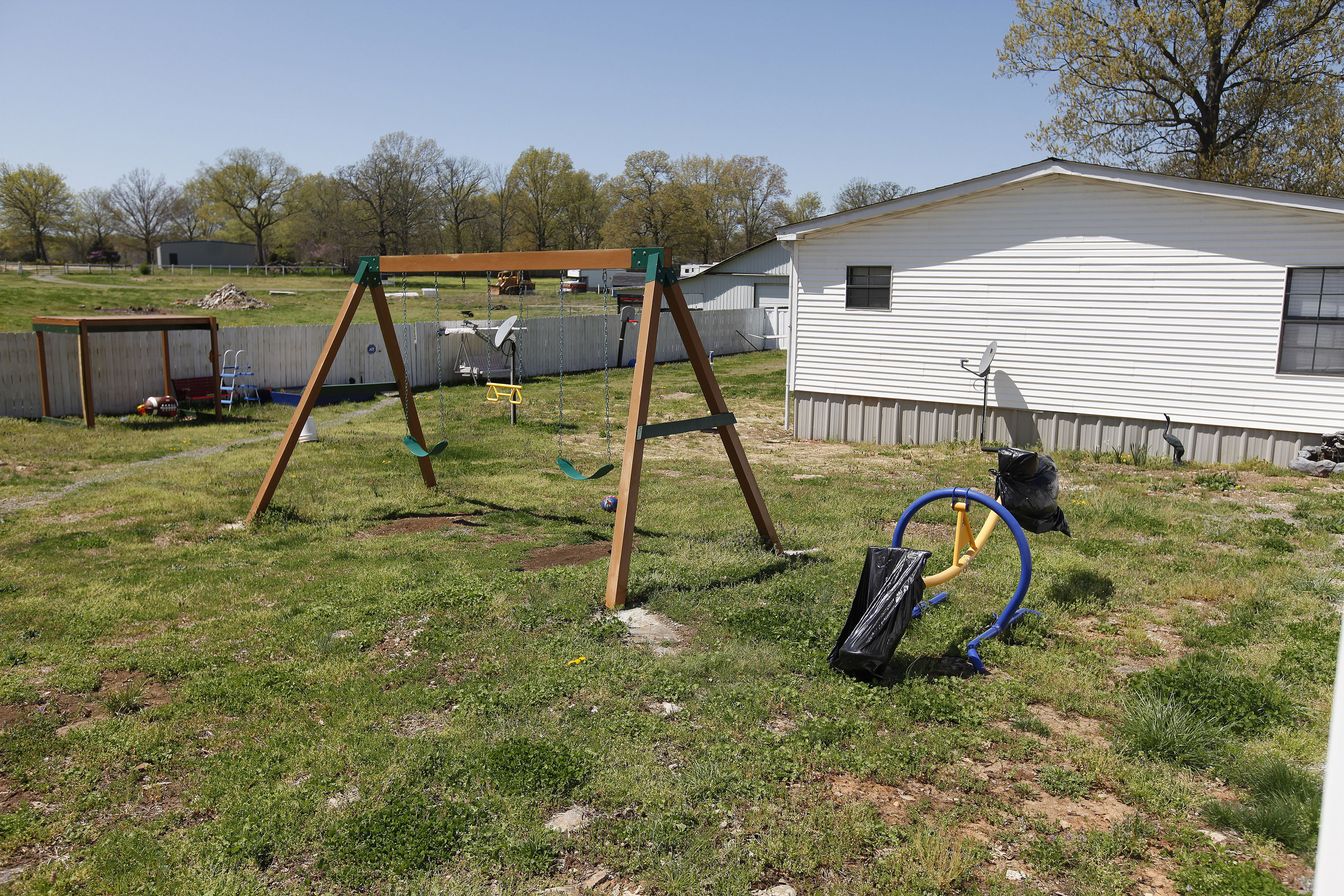 This 2010 file photo shows a swing set in the backyard of Torry Hansen and Nancy Hansen in Shelbyville, Tenn. Torry had sent her 7-year-old adopted Russian son, Artyom Savelyev, back to Moscow on a plane alone after losing patience with his behavior. Officials say problem adoptions are hard to investigate and resolve.
This 2010 file photo shows a swing set in the backyard of Torry Hansen and Nancy Hansen in Shelbyville, Tenn. Torry had sent her 7-year-old adopted Russian son, Artyom Savelyev, back to Moscow on a plane alone after losing patience with his behavior. Officials say problem adoptions are hard to investigate and resolve.Half a world away from her birthplace in Ethiopia, teenager Hana Williams died on a rainy night in the backyard of what a prosecutor called a "house of horrors" - the rural home of her adoptive family in Washington state.
The official causes of her death, after being forced outside as punishment, were malnutrition and hypothermia. Authorities said Hana, during three years of adoption, had been beaten repeatedly with switches, starved and made to sleep in a locked closet.
The parents, Larry and Carri Williams, have been convicted of manslaughter and face sentencing Oct. 29.
Yet more than two years after Hana's death in May 2011, few meaningful steps have been taken by state policymakers to reduce the chances of other adopted children suffering such abuse. A task force offered detailed recommendations, and one limited bill was introduced in Washington's legislature but died in committee this year after raising some concerns that it might infringe on parental rights.
"We really are struggling to find something that will be both effective and constitutional," said the bill's sponsor, Rep. Mary Helen Roberts, who plans to continue her efforts.
Hana Williams' death, while notable in its sad details, was far from an isolated tragedy. A report compiled after her death documented 14 other cases of severe abuse or neglect of adopted children in Washington from 2009 to 2011.
Other cases of adoptions gone wrong have been highlighted by Russia, which last year banned adoptions of Russian children by Americans. Though the move was part of a broader political skirmish, it afforded Moscow the opportunity to complain about mistreatment and lack of post-adoption oversight. About 20 Russian adoptees have died at the hands of their American parents, and in 2010, a Tennessee woman sent her 7-year-old adopted Russian son back to Moscow on a plane alone after losing patience with his behavior.
More recently, articles by the Reuters news agency in September detailed a phenomenon known as "re-homing" in which adoptive parents who've grown frustrated with a child - often one adopted from abroad - arranged through Internet sites for another family to take the child.
The websites were not regulated by any government authority and the families taking the adopted children were not subject to any screening, in some cases leading to incidents of mistreatment. Advocacy groups are now calling for such child-swapping to be outlawed or subject to oversight by state child-protection workers.
"It makes you wonder: Is anyone going to want to do adoptions with us?" said Susan Jacobs, the U.S. State Department's special adviser on children's issues and the Obama administration's point person on international adoptions.
